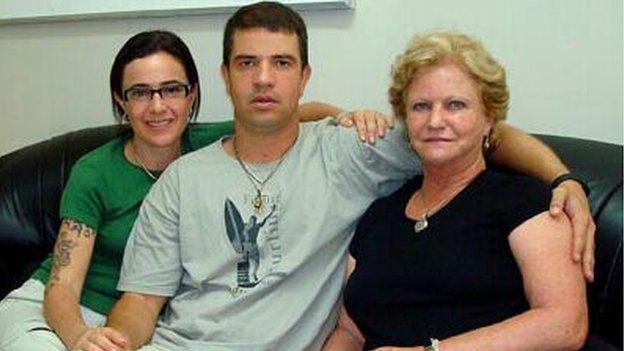Indonesia executions: Joko Widodo stands firm
- Published
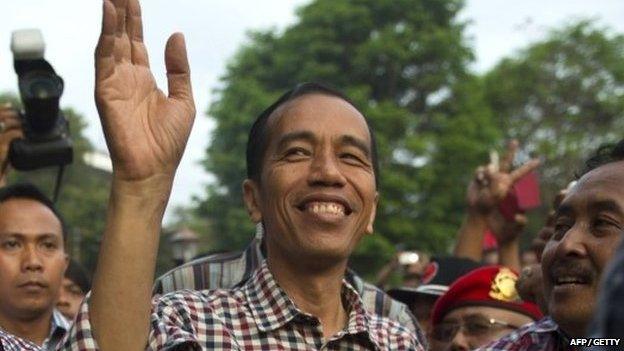
Joko Widodo's hard line on drug trafficking is a popular position among Indonesians
The road leading up to the Tanjung Intan port in Cilacap, near to the prison where several people were due to be executed, was packed with spectators, local people fascinated by the media frenzy on their doorstep.
"I know that there are people who will be executed tonight," said Rahsia, a young woman who came out after seeing the commotion on local television. "I know they sold drugs and that's wrong. There are lots of our young generation and our citizens who die because of drugs. The government must be firm."
It is a sentiment that echoes across Indonesia. Survey after survey shows that the majority of Indonesians support the death penalty for drug traffickers.
And the government was firm - eight convicted drug smugglers were executed by firing squad here on Tuesday night after exhausting the last of their appeals.
Man of action
Joko Widodo, Indonesia's president, denied them clemency. He insists that Indonesia is facing a national drugs crisis and the punishment for traffickers must be severe.
"Eighteen thousand young people die in Indonesia every year because of drugs overdoses," Mr Widodo said in a recent interview. "We are serious about our war on drugs."
Some experts have called that figure into question, and have data suggesting that drug deaths have actually declined in Indonesia in recent years. Critics have also questioned whether all of those executed on Tuesday received due process, as some among them still had legal procedures under way.
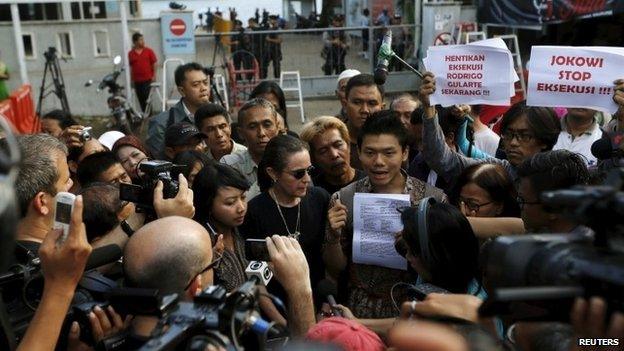
Activists had travelled to the town of Cilacap to protest against the executions
But President Jokowi, as he is known here, is under pressure to show that he is a man of action. His first few months in office have been marked by inaction and indecision and his domestic approval ratings have dropped, making his heady victory last July look like a distant dream.
Analysts say he must show that he is in control and that the death penalty is an easy win for him. Backing down now, especially in the face of foreign pressure, would look like a sign of weakness.
'Please don't kill our sons'
Mr Widodo has publicly declared a war on drugs and said he will refuse all clemency applications from convicted drug traffickers - a stance that could prove legally problematic given that the very point of a presidential clemency is to evaluate each individual on a case-by-case basis, to see whether or not they've changed in prison.
But that will be little comfort to the families of the eight people who were executed, or to the scores of other convicted drug traffickers yet to meet their fate.
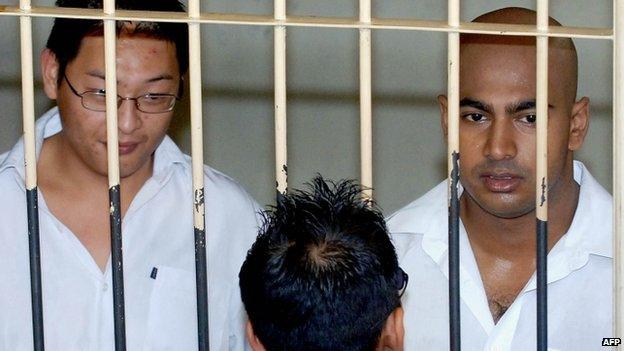
Andrew Chan (left) and Myuran Sukumaran were sentenced to death in 2006
"Our boys have changed in prison," said Myuran Sukumaran's mother in an interview earlier this year. "They have become different men and deserve a second chance. Please don't kill our sons."
Indonesia risks souring relations with other nations over its hardline approach, as it has already with Australia, home of two of the smugglers. But Indonesia's new president appears willing to take the risk, even if it means tarnishing his own reputation as a liberal, reform-minded leader.
- Published29 April 2015
- Published4 March 2015
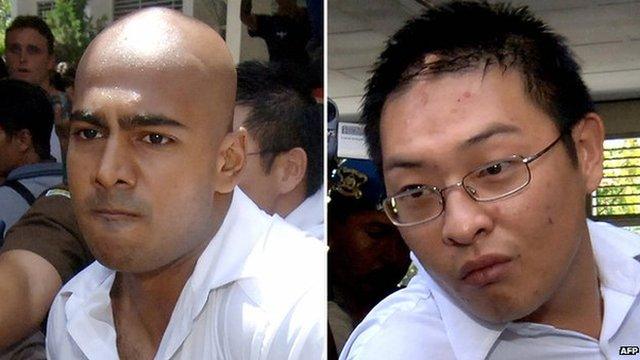
- Published5 March 2015
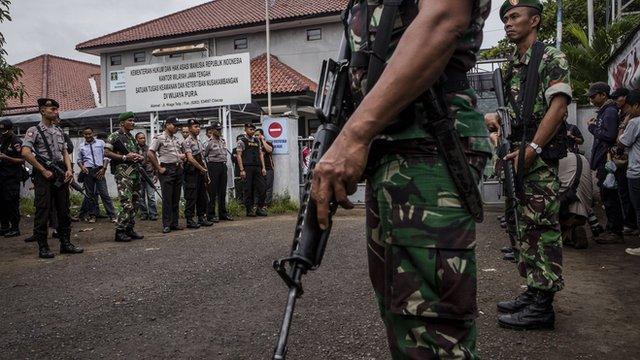
- Published8 February 2015
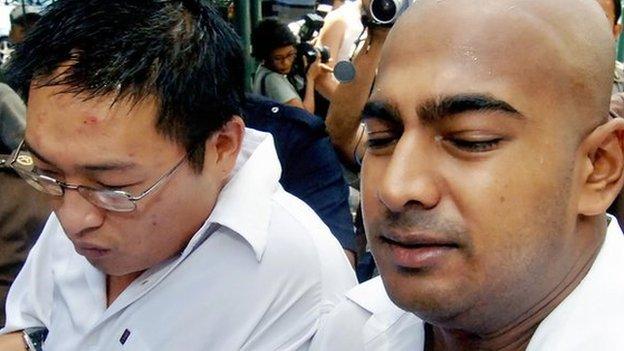
- Published12 March 2015
